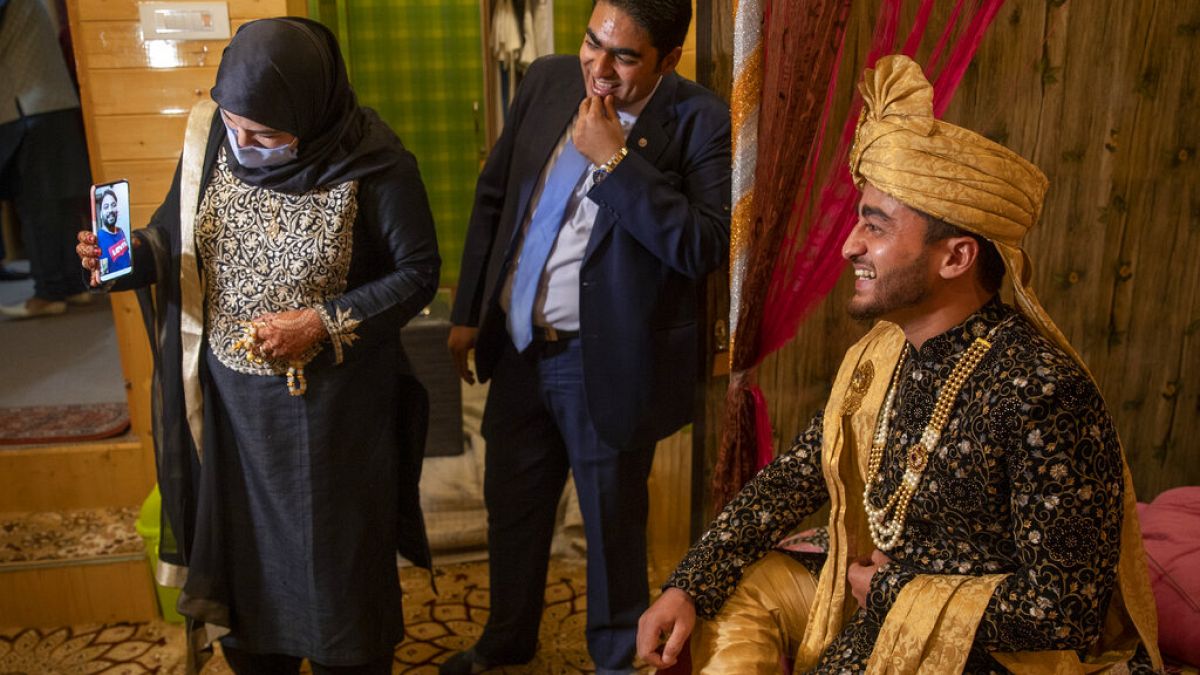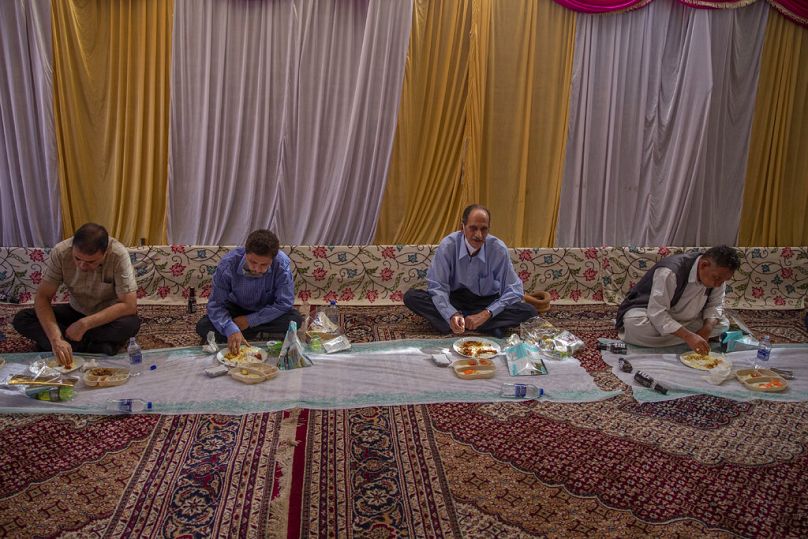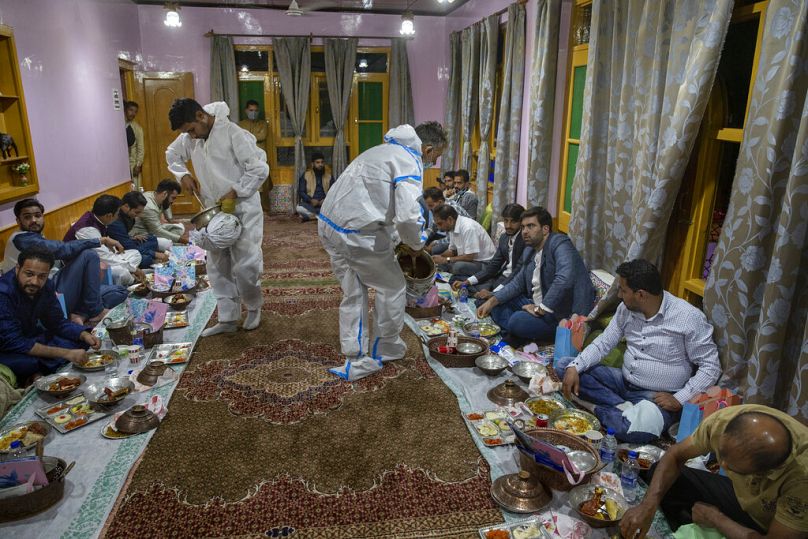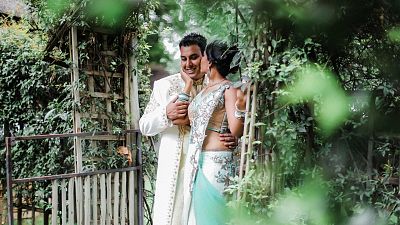Traditionally, Kashmiri weddings bring together hundreds of guests but now they are reserved to close friends and family who must eat from separate plates.
Lavish, week-long weddings are the norm in Srinagar, in Indian-administered Kashmir and families are taking extra care to ensure they continue, despite the coronavirus pandemic.
With masks and gel alcohol at disposal, guests also have to eat in separate plates:
"Everything happened nicely, but we could not cherish food delicacies as per our tradition of eating in a copper platter for four, which dates back 300 years. We enjoyed it this way also, but we missed the traditional way," says Bashir Ahmed, a guest at a marriage party.
Traditionally, Kashmiri weddings bring together hundreds of guests, but now are reserved to close friends and family and the ceremonies require prior permission to go ahead.
Months before the pandemic began spreading, Khalid Bashir's family had drawn up a guest list of hundreds for celebrating his sister's wedding.
"We were expecting to have a gathering of more than 800 people. But our guest list has been shortened to 150 only, which includes children, women, and male relatives," says Bashir.
Kashmiris hold elaborate marriage feasts, where meals are cooked over firewood overnight by professional cooks called "wazas".
Hundreds of guests are invited for lunch and dinner and are served up to 30-course meals. The feast is called "Wazwan".
The wedding ceremonies are normally also a major source of income for decorators and chefs.
But for master chef Ghulam Qadir and his party of over three dozen cooks, the pandemic has badly hit their earnings, and poses a new challenge; to keep themselves, and the guests, safe while cooking and serving marriage feasts.
"We take all the mandatory safety precautions. Like wearing the mask and washing our hands frequently. We follow these precautions because we don't want the guests to face any health issues. We change our clothes before serving the Wazwan," Qadir says.





